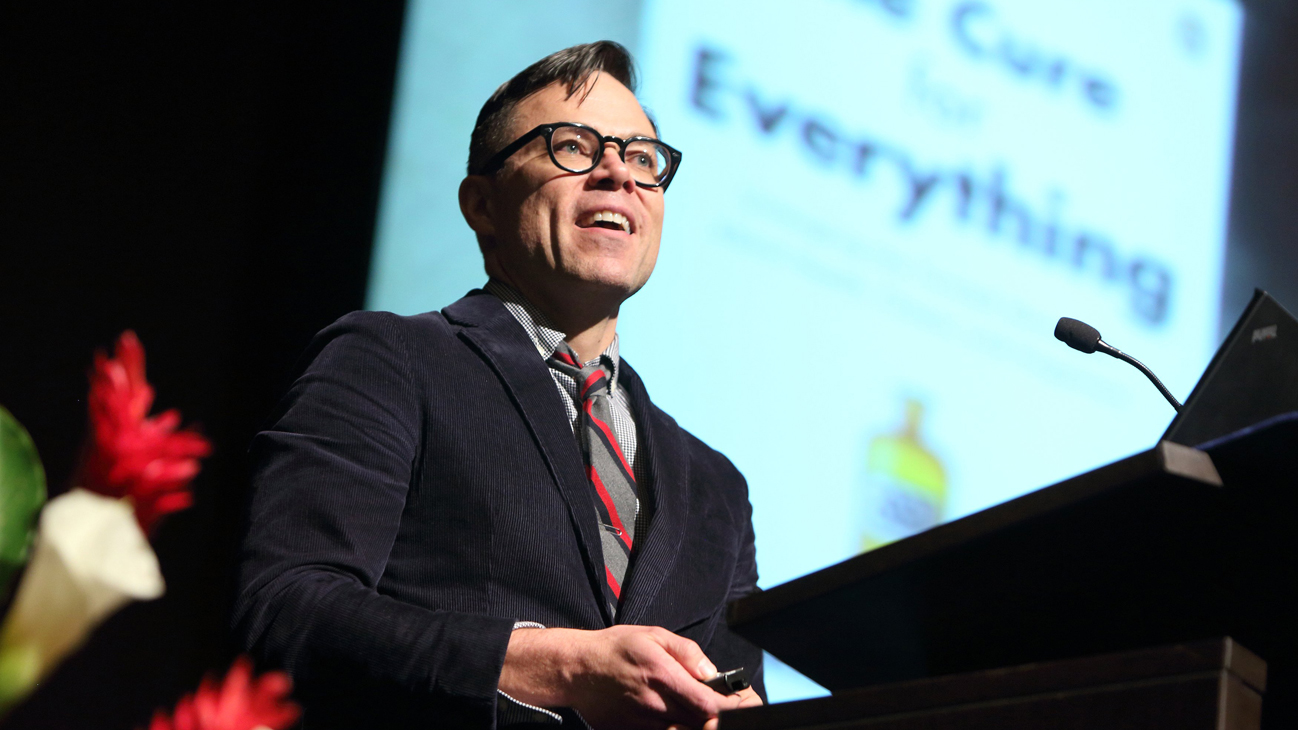Professor Timothy Caulfield is an unrivaled communicator who debunks myths and assumptions about innovation in the health sector—from research on stem cells to diets to alternative medicine—for the benefit of the public and decision-makers. He is a Canada Research Chair in Health Law and Policy, and a Professor in the Faculty of Law and the School of Public Health at the University of Alberta. He has been the Research Director of the Health Law Institute at the University of Alberta since 1993.
His new book, The Vaccination Picture, was released yesterday and Caulfield’s latest article in The Globe and Mail gave us a taste of what we can expect from the book. Here’s that piece:
Yet another bogus vaccine study was recently retracted. This study, which was published in September, purported to find a link between aluminum in vaccines and autism-like changes in the brains of mice. But the data associated with the study, which has been called “anti-vaccine pseudoscience,” is alleged to have been altered.
While it is good news that this piece of bad science has been pulled from publication, much of the damage has likely been done. Once this nonsense hits the airwaves it is absorbed by the anti-vax community and then spread like a plague of misinformation. And rather than ending the story, the retraction of a vaccine study can become a powerful part of the conspiracy theory narrative. The retraction is simply viewed as further proof of a sophisticated cover up.
Indeed, the retraction of the mother-of-all bunk vaccine studies, the fraudulent 1998 paper by Andrew Wakefield, has done little to quell its sway. A mythology has been built around Mr. Wakefield that casts him as an anti-vax martyr (and allows him to make anti-vax movies and give keynote addresses to health care providers).
Let’s be crystal clear, there is absolutely no credible evidence (zero, zilch, zip) to support the most popular anti-vax myths, including the idea that vaccines cause autism or that vaccines can overload a child’s immune system. In fact, many of these myths aren’t even scientifically plausible (for example, a child is exposed to thousands of antigens that stimulate the immune system from the time they are born and, as such, there is no reason to think multiple vaccines can “overload” the immune system). Still, these myths persist and can have a real impact on vaccination intentions.
Changing the minds of hard-core anti-vaxers is likely near impossible. For many in this community the anti-vax position has become a self-identity that is protected by innumerable cognitive biases and impressive feats of mental gymnastics. Luckily, despite their large cultural footprint, this is a relatively small group. The problem is that the noise this small minority makes can influence parents who might, for whatever reason, be vaccination hesitant. Studies have found that, in Canada, over one in four parents have concerns about vaccination that are tied to the myth that vaccines can cause autism. In other words, over a quarter of Canadians harbour a concern that was created by a lie.
Countering vaccination rhetoric is an extremely challenging task. Misinformation is distributed by celebrities and politicians (specifically, the current President of the United States), on anti-vax websites, by alternative health practitioners, and, of course, on social media. A 2016 study of Canadian vaccination experts and frontline public health workers found that “diffusion of negative information online” to be a central cause of vaccination hesitancy.
Vaccination myths are also a favourite topic on so-called news websites like the infuriating Natural News where you can find ridiculous headlines like “Government vaccine compensation payouts prove autism link” and “The MMR vaccine-autism connection: CDC corruption exposed.” These headlines may seem absurd, but even clearly nonsensical noise can have an impact on the vaccination hesitant. Indeed, a recent study from Yale University found that even a single exposure to fake news increases the perceived plausibility of the topic being covered. Other studies have found that exposure to vaccination conspiracy theories and falsely balanced media reports can also impact intention to vaccinate. This is based on the fact that simply making something more familiar – even if through a sensationalistic headline or a crazy conspiracy theory – has the cognitive impact of making it seem more believable.
What can we do? Fighting anti-vax noise will be an ongoing battle that will likely require the utilization of several strategies. There is some evidence that using credible information to emphasize the potential consequences of not vaccinating your child can have an impact, particularly if this is done using creative communications strategies – such as pictures and stories – that speak to the concerns of parents. In addition, highlighting the scientific consensus, the value of herd immunity and the lack of credibility of the myth spinners can also have an impact. Perhaps more important, we need to take even the most bizarre anti-vax rumours and conspiracy theories seriously and strive to quickly counter them with good, clear and trustworthy information. There is some evidence that responding rapidly with compelling and shareable content – that is, fighting fire with science-informed fire – can help to slow the spread of misinformation and pseudoscience.
Of course, vaccination hesitancy is a complex social phenomenon. It involves issues of trust and perceived conflicts of interest and the need to ensure access to appropriate services. And information alone won’t necessarily change minds. There will be no quick fix. Still, in this era of fake news, conspiracy theories, and social media spin, we need a suite of science-informed and creative communication strategies to counter the rising tide of anti-vax misinformation.

